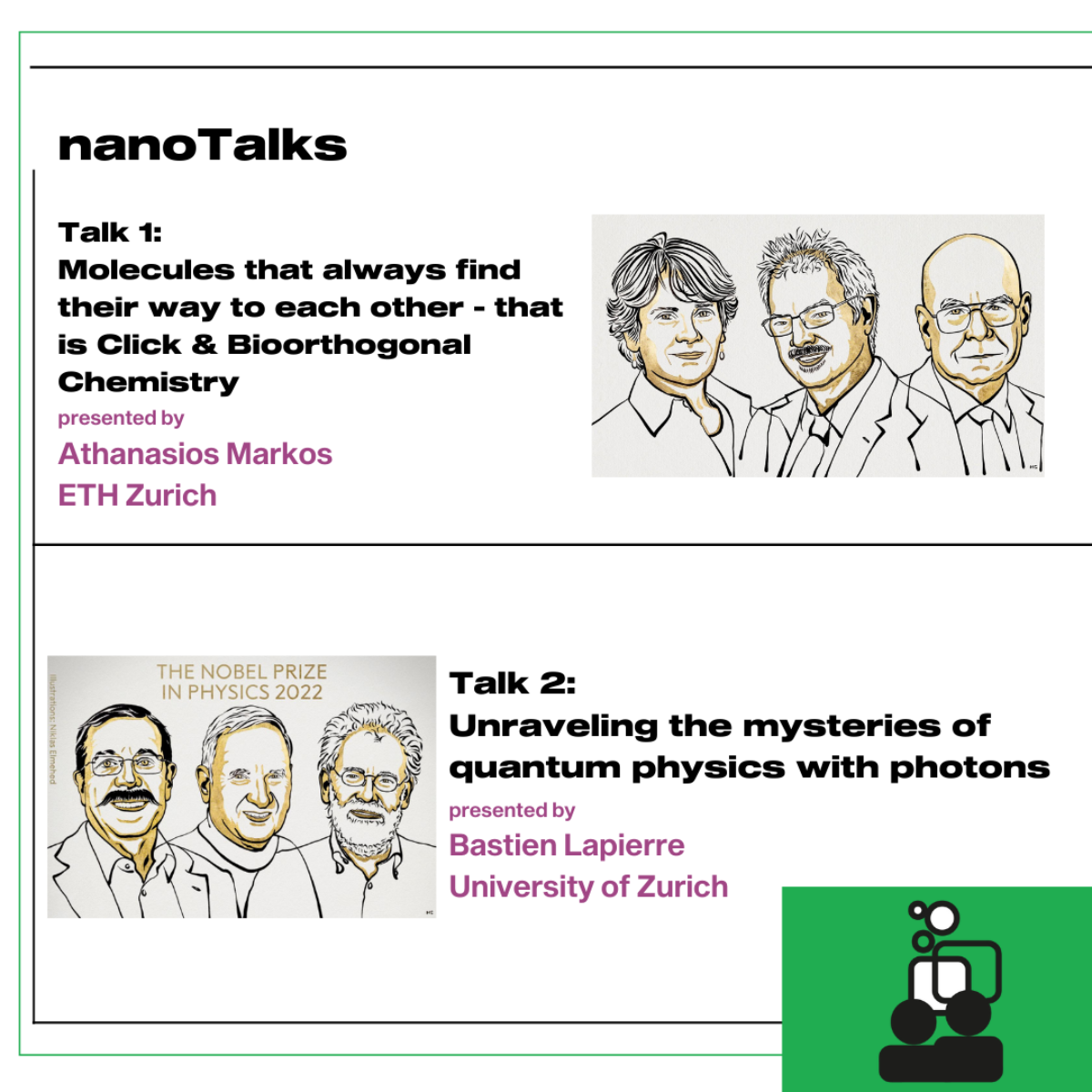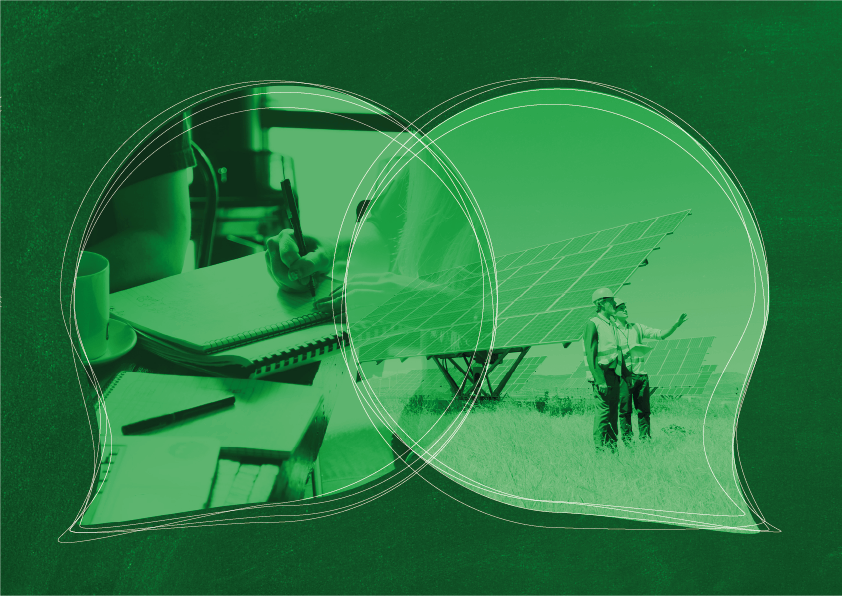
November nanoTalks: Nobel prizes 2022
The nanoTalks in November focus on this years Nobel Prizes. We will discuss how two concepts of highly selective and efficient reactions have changed approaches to drug discovery, the synthesis of new materials and the understanding of fundamental processes in living organisms. Furthermore we will discuss how quantum entanglement enables particles to share non-local quantum information leading to a further understanding of physics at the atomic scale.
24.11.2022
Universität Zürich, KOL-G-221
Free

Free
Talk 1: Molecules that always find their way to each other - that is Click & Bioorthogonal Chemistry
Presented by Athanasios Markos, PostDoc at the Department of Chemistry and Applied Biosciences, ETH Zurich
The 2022 Nobel Prize in Chemistry was awarded to Carolyn R. Bertozzi, Morten Meldal and K. Barry Sharpless «for the development of click chemistry and bioorthogonal chemistry». This talk aims to show how two concepts of highly selective and efficient reactions have changed approaches to drug discovery, the synthesis of new materials and the understanding of fundamental processes in living organisms.
Talk 2: Unraveling the mysteries of quantum physics with photons
Presented by Bastien Lapierre, PhD student at the Department of Physics in the group of Condensed Matter Theory, University of Zurich
This year’s Nobel prize in Physics was awarded to A. Aspect, J. Clauser and A. Zeilinger for their experimental proof of a fundamental yet mysterious property of quantum physics: non-locality. Quantum entanglement enables different particles, separated from very large distances, to share non-local quantum information, such that «tickling» one particle will instantaneously make its partner laugh. This foundational discovery led to the development of novel technologies such as quantum cryptography, and more broadly shaped our understanding of physics at the atomic scale.

The nanoTalks offer a platform for inspiring lectures on science, technology or art. On the last Thursday of each month, two speakers take us into their world of research for 15 minutes each. After the talks, there are another 15 minutes to ask questions and exchange ideas.
